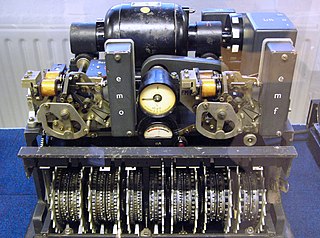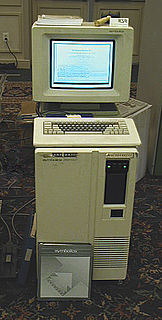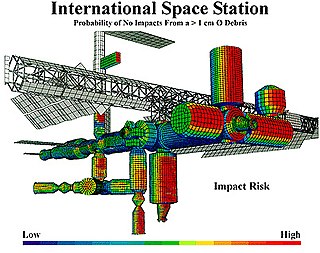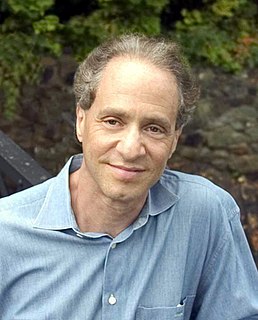
Raymond Kurzweil is an American inventor and futurist. He is involved in fields such as optical character recognition (OCR), text-to-speech synthesis, speech recognition technology, and electronic keyboard instruments. He has written books on health, artificial intelligence (AI), transhumanism, the technological singularity, and futurism. Kurzweil is a public advocate for the futurist and transhumanist movements, and gives public talks to share his optimistic outlook on life extension technologies and the future of nanotechnology, robotics, and biotechnology.
Singularity or singular point may refer to:
The technological singularity is the hypothesis that the invention of artificial superintelligence (ASI) will abruptly trigger runaway technological growth, resulting in unfathomable changes to human civilization.
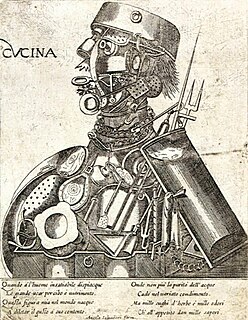
Whole brain emulation (WBE), mind upload or brain upload is the hypothetical futuristic process of scanning the mental state of a particular brain substrate and copying it to a computer. The computer could then run a simulation model of the brain's information processing, such that it responds in essentially the same way as the original brain and experiences having a conscious mind.

Immortality is eternal life, being exempt from death, unending existence. Some modern species may possess biological immortality.

Singularitarianism is a movement defined by the belief that a technological singularity—the creation of superintelligence—will likely happen in the medium future, and that deliberate action ought to be taken to ensure that the singularity benefits humans.
The Machine Intelligence Research Institute (MIRI), formerly the Singularity Institute for Artificial Intelligence (SIAI), is a non-profit organization founded in 2000 by Eliezer Yudkowsky, originally to accelerate the development of artificial intelligence, but focused since 2005 on identifying and managing the potential risks to humanity that future AI systems could become superintelligent. MIRI's work has focused on a friendly AI approach to system design and on predicting the rate of technology development.
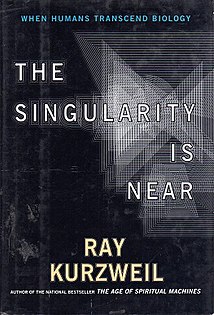
The Singularity Is Near: When Humans Transcend Biology is a 2005 non-fiction book about artificial intelligence and the future of humanity by inventor and futurist Ray Kurzweil.

The Institute for Ethics and Emerging Technologies (IEET) is a "technoprogressive think tank" that seeks to contribute to understanding of the likely impact of emerging technologies on individuals and societies by "promoting and publicizing the work of thinkers who examine the social implications of scientific and technological advance". It was incorporated in the United States in 2004, as a non-profit 501(c)(3) organization, by philosopher Nick Bostrom and bioethicist James Hughes.
In futures studies and the history of technology, accelerating change is a perceived increase in the rate of technological change throughout history, which may suggest faster and more profound change in the future and may or may not be accompanied by equally profound social and cultural change.
An artificial brain is software and hardware with cognitive abilities similar to those of the animal or human brain.
Natasha Vita-More is a strategic designer, author, speaker and innovator within the scientific and technological framework of human enhancement and life extension. Her interests are located within the ethical uses of science and technology and socio-political implications of revolutionary advances impacting humanity's future.
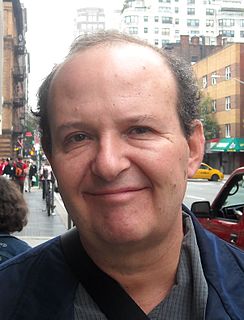
Giulio Prisco, born in Naples (Italy) in 1957, is an Italian information technology virtual reality consultant; as well as a writer, futurist, and transhumanist. He is an advocate of cryonics and contributes to the science and technology online magazine Tendencias21. He produces teleXLR8, an online talk program using virtual reality and video conferencing, and focused on highly imaginative science and technology. He writes and speaks on a wide range of topics, including science, information technology, emerging technologies, virtual worlds, space exploration and futurology. Prisco's ideas on virtual realities, technological immortality, mind uploading, and new scientific religions are extensively featured in the OUP book "Apocalyptic AI - Visions of Heaven in Robotics, Artificial Intelligence, and Virtual Reality".
Indefinite lifespan is a term used in the life extension movement and transhumanism to refer to the hypothetical longevity of humans under conditions in which ageing is effectively and completely prevented and treated. Their lifespans would be "indefinite", because protection from the effects of aging on health does not guarantee survival. Such individuals would still be susceptible to death by disease, starvation, accidents, or deliberate killing, but not death from aging. Semantically, "indefinite lifespan" is more accurate than "immortality" which, especially in religious contexts, implies an inability to die.
Following is a list of topics related to life extension:

The following outline provides an overview of and a topical guide to transhumanism, an international intellectual and cultural movement that affirms the possibility and desirability of fundamentally transforming the human condition by developing and making widely available technologies to eliminate aging and to greatly enhance human intellectual, physical and psychological capacities. Transhumanist thinkers study the potential benefits and dangers of emerging and hypothetical technologies that could overcome fundamental human limitations as well as study the ethical matters involved in developing and using such technologies. They predict that human beings may eventually be able to transform themselves into beings with such greatly expanded abilities as to merit the label posthuman.

Transcendent Man is a 2009 documentary film by American filmmaker Barry Ptolemy about inventor, futurist and author Ray Kurzweil and his predictions about the future of technology in his 2005 book, The Singularity is Near. In the film, Ptolemy follows Kurzweil around his world as he discusses his thoughts on the technological singularity, a proposed advancement that will occur sometime in the 21st century when progress in artificial intelligence, genetics, nanotechnology, and robotics will result in the creation of a human-machine civilization.
The Thiel Foundation is a private foundation created and funded by billionaire Peter Thiel, co-founder of PayPal and early investor in Facebook.
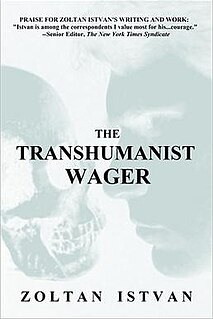
The Transhumanist Wager is a 2013 science fiction novel by American author Zoltan Istvan. The novel follows the life of Jethro Knights, a philosopher whose efforts to promote transhumanism ultimately lead to a global revolution. It was a first place winner in visionary fiction at the International Book Awards.

